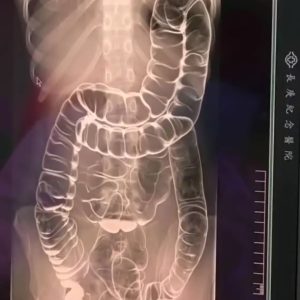
In our fast-moving modern lives, stress is an almost constant companion, often affecting our sleep and overall health. One common yet overlooked issue that disrupts restful sleep is waking up with a dry mouth during the night.
Though it might appear minor, frequent nighttime dry mouth can be quite uncomfortable and may signal an underlying health concern.
This issue often arises in the latter half of the night and can be linked to several different causes. Here are eight frequent contributors to dry mouth while sleeping:
1. Digestive Disturbances
Eating heavy, greasy, salty, or spicy meals late at night can irritate the digestive system. These types of foods tend to absorb water and increase fat and blood pressure levels, which can interrupt digestion as you sleep.
As your body continues digesting during the night, it draws water away, leaving your mouth dry by morning.

2. Liver Issues
The liver is essential for removing toxins from the body. When it’s inflamed or not functioning well, toxins may accumulate.
One subtle sign of liver trouble can be chronic dry mouth during sleep. If this symptom appears often without a clear reason, it’s wise to get a medical check-up to assess liver health.
3. Not Enough Water
A very common reason for waking up with a dry mouth is dehydration. Your body continues to lose fluids while you sleep through breathing and other natural processes.
If you haven’t had enough water during the day, your mouth may feel parched by night. To avoid this, stay hydrated consistently throughout the day.
4. Dental or Gum Problems
Conditions like gingivitis, periodontitis, or even poor oral hygiene can lead to bacterial buildup. These bacteria thrive overnight, causing inflammation and dryness.
Brushing, flossing, and regular dental visits are crucial to prevent these issues and maintain oral moisture.

5. Diabetes
Dry mouth at night is a frequent complaint among people with diabetes. Elevated blood sugar levels make the kidneys work overtime to flush out the excess, causing the body to lose more fluids.
This fluid loss can result in dehydration and a dry sensation in the mouth during sleep.
6. Bile Reflux
When bile backs up into the stomach due to weakened liver function, it can disrupt sleep and cause digestive discomfort.
Bile reflux may also contribute to dry mouth at night. Addressing liver health is key to managing this problem.
7. Fever
A rise in body temperature from fever causes fluid loss, often leading to a dry or burning feeling in the mouth.
Staying hydrated and resting can help manage these symptoms, along with fever-reducing treatments.

8. Overactive Thyroid (Hyperthyroidism)
An accelerated metabolism caused by hyperthyroidism increases the body’s fluid needs and stimulates the nervous system excessively.
This can leave you waking up with a persistently dry mouth during the night.
If you often wake up with a dry mouth, it’s worth reviewing your daily habits—what you eat, how much water you drink, and your oral hygiene routine. Should the problem continue, consulting a healthcare professional is the best way to rule out more serious conditions.




